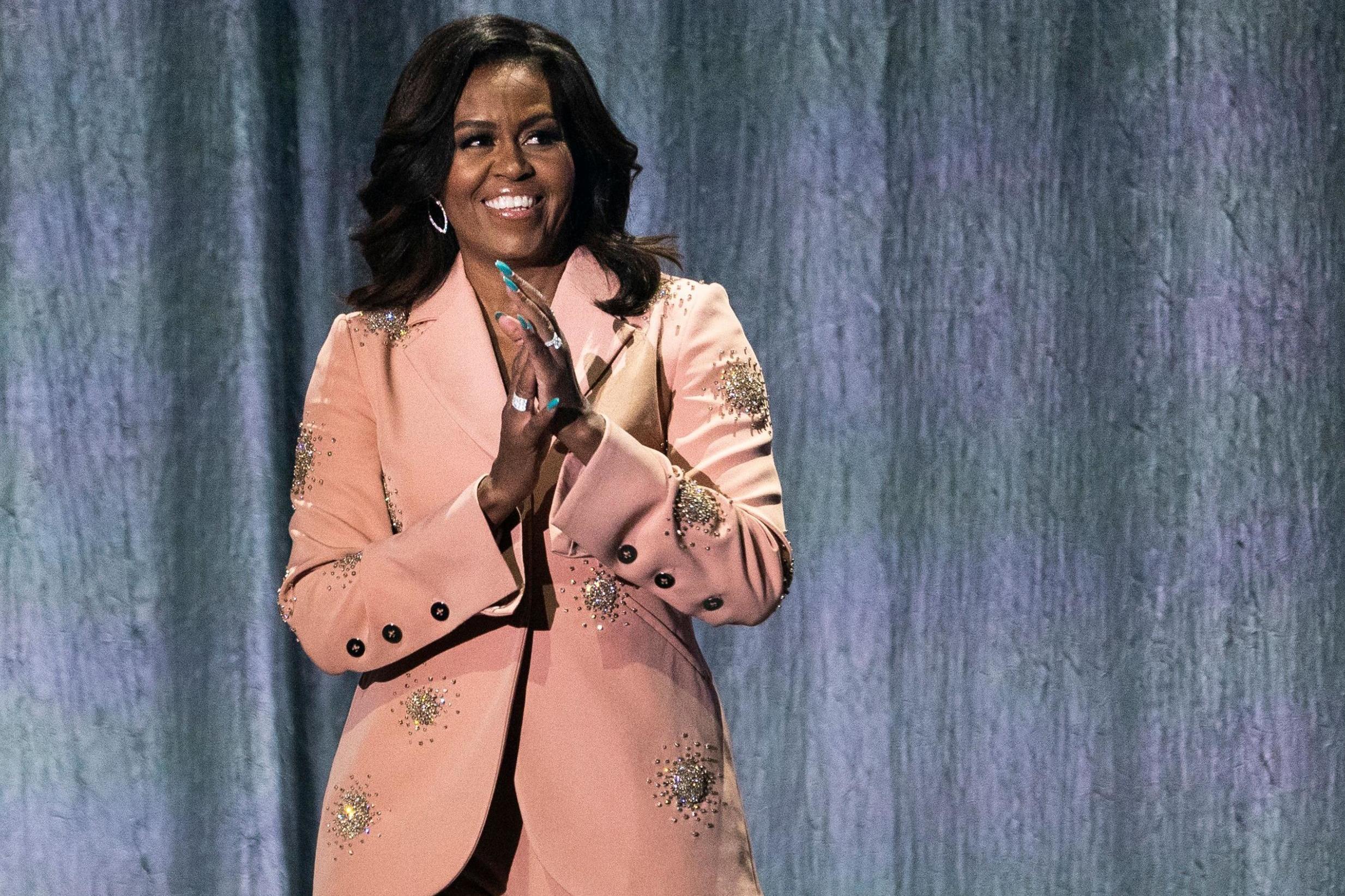Michelle Obama reflects on what Juneteenth means to her: 'We still find something to celebrate'
Former first lady says 'our story is nonetheless one of progress'

Your support helps us to tell the story
From reproductive rights to climate change to Big Tech, The Independent is on the ground when the story is developing. Whether it's investigating the financials of Elon Musk's pro-Trump PAC or producing our latest documentary, 'The A Word', which shines a light on the American women fighting for reproductive rights, we know how important it is to parse out the facts from the messaging.
At such a critical moment in US history, we need reporters on the ground. Your donation allows us to keep sending journalists to speak to both sides of the story.
The Independent is trusted by Americans across the entire political spectrum. And unlike many other quality news outlets, we choose not to lock Americans out of our reporting and analysis with paywalls. We believe quality journalism should be available to everyone, paid for by those who can afford it.
Your support makes all the difference.Michelle Obama has reflected on what Juneteenth means to her while opening up about the experiences of her grandfathers.
“Most of us were taught that slavery came to an end when President Lincoln signed the Emancipation Proclamation in 1863. But as is so often the case, the full promise of this country was delayed for segments of the African-American community,” the former first lady wrote in a statement shared to Twitter on Friday. “And for enslaved people in Galveston, Texas, freedom didn’t come until June 19th, 1865.”
But, despite its dark history, Ms Obama said that what she loves most about Juneteenth is “that even in that extended wait, we still find something to celebrate.”
“Even though the story has never been tidy, and black folks have had to march and fight for every inch of our freedom, our story is nonetheless one of progress,” she continued.
According to Ms Obama, the holiday makes her think of her own family’s journey and the segregation and racism her grandfathers, who were both the grandchildren of enslaved people, faced.
“They grew up in the Jim Crow South and migrated north in search of a better life,” she wrote. “But even then, they were still shut out of jobs and schools and opportunities because of the colour of their skin.
“But they pressed forward with dignity and with purpose, raising good kids, contributing to their communities, and voting in every election.
“And though they didn’t live to see it themselves, I can see the smiles on their faces knowing that their great-granddaughters ended up playing ball in the halls of the White House - a magnificent structure built by enslaved Americans."
The former first lady concluded her statement explaining that there are “so many more parts to this story” before asking that people continue using their voices and their votes to keep the story moving forward “for our own children, and theirs.”
On Friday, former president Barack Obama also marked Juneteenth, writing on Twitter that the holiday “has never been a celebration of victory, or an acceptance of the way things are” but a “celebration of progress.”
“It's an affirmation that despite the most painful parts of our history, change is possible - and there is still so much work to do,” he wrote.
Join our commenting forum
Join thought-provoking conversations, follow other Independent readers and see their replies
Comments